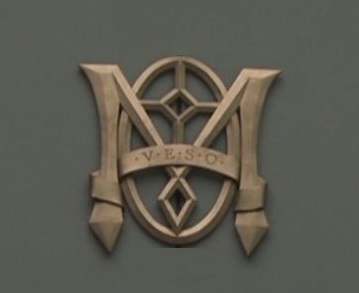I review a lot of children’s books for a website called Redeemed Reader. A common theme in children’s fantasy is “magic” as a lost element in a disenchanted world. The protagonist is born with some supernatural gift or sensitivity that no one appreciates, but once presented with a problem he (or she) forges fearfully ahead and discovers calling, power, and purpose. The plot unfolds against a background of skepticism or outright hostility. In the Harry Potter series, muggles provide the contrast to magic, who are often irritating but generally harmless.

In Philip Pullman’s Dark Materials series, the Magisterium, a cartoony stand-in for organized religion, play the villains. I just read a delightful children’s fantasy that followed the Pullman plotline closely (but less dogmatically), complete with a monk-like order of naysayers intent on stomping out all witchery and wizardry.
I’m also seeing a lot of magical realism, where supernatural events occur in a real time and place, among characters with quirky names and personalities. The magic in these stories doesn’t have a source; it’s just there, or it’s somehow passed down through families, coming to rest upon an unassuming protagonist. A common element in all these books is the need to believe—in yourself, in your abilities, and especially in the “magic.”
I’m not sure what the increase in fantasy and magical realism for middle-schoolers tells us, except perhaps that when God goes out the door, magic creeps down the chimney. We have our supernatural yearnings, and need our supernatural fix.
Magic is one thing in literature; another thing in public policy. Some of the most ideological politicians like to claim science as their guide, as though “science” were a magic word. And in a way, it is. “The serious magical endeavour and the serious scientific endeavour are twins,” wrote C. S. Lewis, in The Abolition of Man: “one was sickly and died, the other strong and throve. But they were twins. They were born of the same impulse”—that being, to control nature and bend reality.
That Hideous Strength, Lewis’ fictional exposition of The Abolition of Man, pictures Science going full circle and merging with Magic in order to remake humanity. In his 1945 review of the novel, George Orwell approved the premise of THS, but “On the whole, novels are better when there are no miracles in them.”
Still . . . when God goes out the door, the supernatural creeps down the chimney. In the secular public square, life can’t be seen as a gift, because gifts imply givers. Life is therefore more of a problem, or series of problems, to be solved with facts and stats repeated like incantations. Capital-S Science becomes a religion–even a Magisterium–and imagination retreats into fantasy, e.g., children’s literature and the Marvel universe, offering hope that the world really is a fantastic place and there’s a little magic in all of us.
And you know what? It’s true. “Organized religion,” in the form of Christian doctrine, tells us that the world is fantastic, and humans are spiritual beings as well as physical. But since public policy can’t acknowledge that in any meaningful way, suppressed spirituality comes out in magical thinking via “science,” all the more as it drifts away from traditional forms of religion. In That Hideous Strength, every nation has its own spiritual genius—its “magic,” you might say, that defines its place in the world and calls it back to its truest self. Our truest self combines initiative and altruism in a dynamic that self-corrects as it progresses: at its best, something like the abolitionist movement. At its worst, Karenism.
That’s why, in the United States, I can’t see us either buying in to a massive socialist restructuring, or going back to small-government federalism. We keep drifting leftward while our peculiar American genius pulls us back, so that we’re stuck mid-stream. The pressure of the current will keep tugging our freedoms away, but even as that happens, our resistance may grow deeper roots.
No political solution will work very well. We’re seeing that already, with a patchwork of openings and closings, conflicting data, escalating anger, and a looming election that looks more like a bloodbath. When the smoke clears, I doubt anyone will be happy. This state of affairs will not be fixable by science or magic. But if we can’t fix it, I think there’s a way to navigate it, by a combination of practical thinking and spiritual muscle. And that’s a topic for next week.

“Magic” is, in no small part, another kind of Gnosticism. The “increase in fantasy and magical realism for middle-schoolers” is not a product of middle-schoolers’ efforts, but of adults who have come under the spell of such things or who are working with a misguided analogy that our relationship with God operates in a way that corresponds with such things. In biblical hermeneutics, one approach looks at the biblical texts in terms of a triptych of “author–text–reader.” So-called “historical criticism,” in all its manifestations, tried to get at the author (and beyond). More recent “literary” approaches focused on the text as such, to the neglect of sender (author) or receiver (reader), and still others on the “reader” to the neglect of author or text. The focus on fantasy and magical realism corresponds to these latter two, precisely in the encouragement to “believe in yourself, in your abilities, and in the magic” (as in “the Force”).